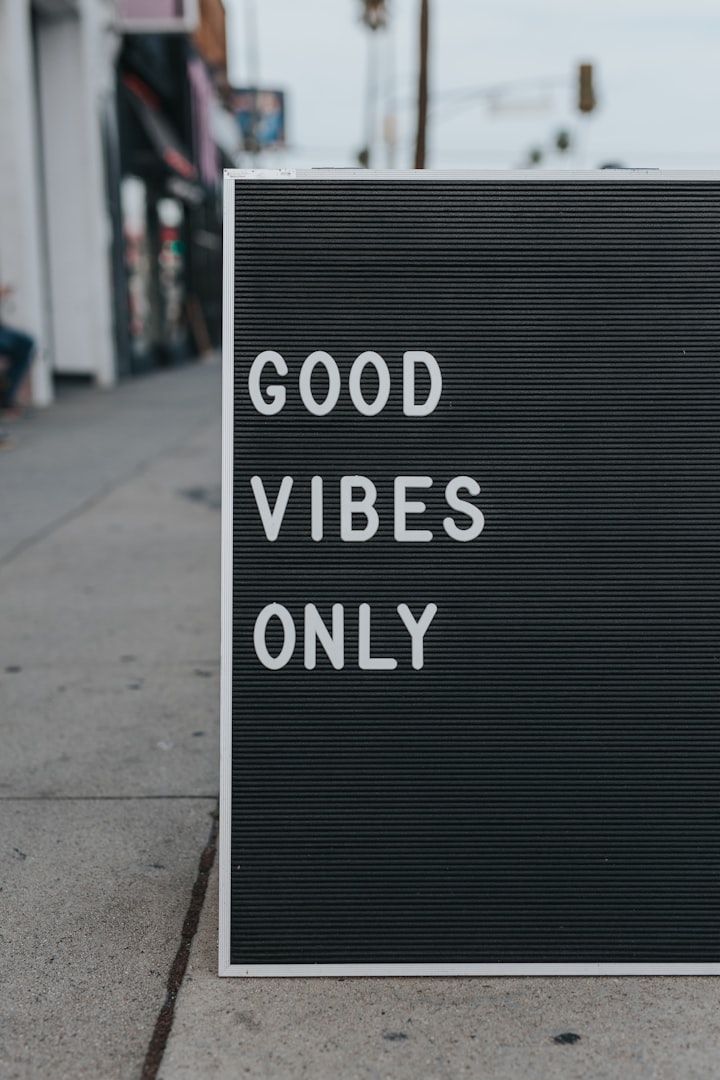Panic! 5 ways to Alleviate Panic Attack Symptoms and Tips on Dealing with their Aftermath
Panic attacks suck, but they can suck a little less.

My first panic attack was during my sophomore year of college. I had experienced anxiety before, the rapid heartbeat, sweaty palms and numb fingers, loss of appetite and spinning thoughts. But I had never had a panic attack. I was sitting on my bed and noticed my breathing was shallow and rapid, restricting oxygen from my brain. My thoughts became cyclical and I wasn't able to focus fully on any one particular notion that could explain these unfamiliar feelings. I felt disconnected from my body, a physical dissociation from the world and the items around me. I was paralyzed. I realized, with no small amount of terror, that I couldn't bring myself to even move a finger. I was stuck sitting on my bed, feet dangling and teeth gritted shut, my jaw protesting under the pressure. After about 5 minutes I finally was able to turn and grab my laptop, tears starting to stream down my face. I opened Google and typed into the search bar, "feeling crazy." The first result was the Wikipedia page for Panic Attacks:
Every symptom listed aligned with what I was feeling. Faintness, hyperventilation, numbness, the feeling of impending doom; that this would never end. I didn't know if I should feel relieved that I wasn't actually crazy, or worried because I still might be. As I began navigating the world of panic attacks over the next few years, I experienced as many as 8 a day, and found myself chasing anything and everything that would make these horrible, debilitating things stop. My journey with anxiety and panic attacks are far from over, but over the years I have accumulated advice, tips, and research that I keep in my arsenal, and I hope they help even just one person.

1) Ride it out. During a panic attack your perception of time is skewed. Panic attacks last, on average, 15 to 20 minutes. I find that telling myself that, or even setting a timer, helps to calm the fear that the panic attack won't stop. "In 20 minutes, I won't feel this way," is one of my more common mantras. On a related note, when you begin to feel the warning signs of a panic attack, forcing your feelings down and not allowing the panic attack to happen will only lead to a longer, more severe one later in the day. Leading up to a panic attack, I experience a tightening in my chest, rapid and scattered thoughts, and uncontrollable crying. Paying attention to my warning signs allows me to remind myself that in 20 minutes, all of this will be over. Unfortunately, I find myself in situations where I have to shove it down because I'm at work or around people, and it is quite noticeable that the symptoms are worse and last longer. Riding out your panic attacks as they come is the best way to practically handle them and get them to pass more quickly.

2) Move. If your panic attack starts while you're sitting down (couch, chair, laying in bed), you have to move to relieve the symptom of paralysis; the feeling and belief that you can't move your body, or sometimes even speak. Getting on your feet, preferably with no shoes, helps physically and mentally ground yourself. Concentrate on the sensation of your feet and toes spread against the floor, feel your weight and embrace your presence, that you take up space and are connected to the world. You can even try jumping up and down, which has the added benefit of taking away some of the savagery of cyclical thinking. If your panic attack begins while you're driving, a passenger on public transportation, or walking, your first priority is safety; pull over, get off a stop or a few early, find a quiet or isolated place outside. Do a few jumping jacks, run in place, or just jump up and down. Any movement that will bring you back down to your body. Moving is extremely important while actively having a panic attack, and leads into #3:

3) Breathe. One of the most common panic attack warnings is fast and shallow breathing, breathing that comes from the chest, causing muscle tension and soreness and not allowing as much oxygen to the brain. Lack of oxygen contributes to the thoughts of doom, faintness, light-headedness, and the feelings of suffocation and depersonalization. When you're mid-panic attack, this can be the hardest out of the 5 sections in my list. It is very difficult to regulate your breathing while sobbing, curled up on your bed, or frozen in place behind the wheel in the grocery store parking lot. I'm not saying that any of this is easy, and it all takes practice. Lots. Lots of practice. Some people who suffer from anxiety and panic attacks smoke cigarettes, attributing their lowered anxiety to their Marlboro Lights. Nicotine actually raises your blood pressure, as well as making your heart beat faster. The real reason behind smokers believing cigarettes help with anxiety is because it regulates your breathing, as you take deeper breaths and actually, breathing the exact way I am about to tell you to try. Breathe in deeply through your mouth, expanding only your stomach, your shoulders and chest should not move. You don't have to hold the breath, but when you exhale, do it slowly through your nose. Doing this 5-10 times will slow your breathing and open up more routes for oxygen to get to the brain. Again, this is not easy to do while having a panic attack, so I recommend starting this type of breathing during the day; when it becomes muscle memory it will be much easier to do during a panic attack.

4) Mantras. Having something (preferably a few things) that you can say to yourself, or write and hang up somewhere, is very important for getting through panic attacks. My very first mantra wasn't anything groundbreaking or particularly inspiring, "it's okay, it's okay, it's okay." Genius, right? But it goes to show that it doesn't matter what your mantra is, as long as it helps and calms you down even a little bit. It took me an unfortunate 2-3 years to notice a habit I had developed when I had panic attacks; berating myself. I was merciless: "why are you crying, you're such a baby," "why can't you handle one day without breaking down?" "you're so weak, no one else cries in their car 3x a day," "your friends are going to get sick of you if you ever tell them about your anxiety, and you will ruin every relationship you ever have." I was awful to myself, I still am some days. Part of that comes from other sources than anxiety, but when I began thinking about mantras and using them, my self deprecating "pep-talks" become less aggressive and hurtful. I have mantras that are verbal, but I also added a visual component which has helped inordinately. I picture my childhood self, maybe 9-11 years old, and I tell her, "it's okay. You're safe. Nothing bad is going to happen to you. Crying is okay, it's okay to have and express feelings." Comforting my childhood self comforts my current self by extension, and it also puts a hold on my debilitating cyclical thinking as I immerse myself in the daydream. Having a verbal, repetitive, mantra achieves the same goal as deep breathing, it becomes a focal point that can take away some of the panic attack symptoms of "doom thinking" and spiraling negative thinking.

5) Recovering. The end of a panic attack often feels to me like I just hiked up a mountain, and I am exhausted. I feel a mixture of relief that the chest tightness, crying, and dissociation have gone away, and the other part of the mixture is wanting to drop to my floor face first. This is where self-care and trying out some of the tips in this article really comes into play. I know all you want to do is curl up and relish in the relief that it's over, but this is an important time. You can think back to the panic attack and evaluate what feelings were the most prominent and debilitating and make a list of things to try next time if something(s) you tried didn't work, or work well enough. With the panic attack fresh on your mind this would be a great time to either meditate or listen to a guided meditation, I have found several that I really enjoy. This is one that's in my top 3:
At this point is where you can pick apart possible triggers, keep track of when the attacks strike in case there is a time factor, and decide if you might need more help than trying to deal with panic attacks on your own or with support from friends and loved ones. Although their intentions are nothing but supportive, sometimes a heavier hand is needed. There is absolutely no shame in therapy, talking to someone who doesn't know you or anything about your life other than what you tell them is incredibly cathartic. My disclaimer on therapists is I've had more than 10 and liked maybe 4 of them, so don't give up if the first person you see you don't like; they don't take it personally, sometimes there just isn't a connection. When you find someone you do like and feel comfortable with they may suggest medication, or they may not. My personal feelings on anti-anxiety medications like xanax are that they are short term solutions and should not be used over long periods. Seeing a therapist could also reveal underlying diagnosis' that cause panic attacks and then a different approach for treatment could be needed all together. If you are suffering from panic attacks for more than a month I would really recommend talking to a professional.

I hope, whoever you are that's reading this, if you suffer from panic attacks or have a loved one who does, that you were able to find and take away something from this. Even if it's as simple as knowing you are not alone. Panic attacks suck, but they're even worse when we keep them to ourselves and struggle to deal with them alone. We can make them suck a little less by destigmatizing them, by doing research into causes–what methods and measures people can take to alleviate symptoms, and by coming together to support each other and everyone else who struggles with mental health.
"Panic! 5 MORE ways to Alleviate Panic Attack Symptoms and Anxiety" is the next part in this series
About the Creator
Carly Doyle
Writer, Librarian, Researcher, Activist. I could keep listing things but, hey, why don't you just take a gander at my writing?






Comments
There are no comments for this story
Be the first to respond and start the conversation.